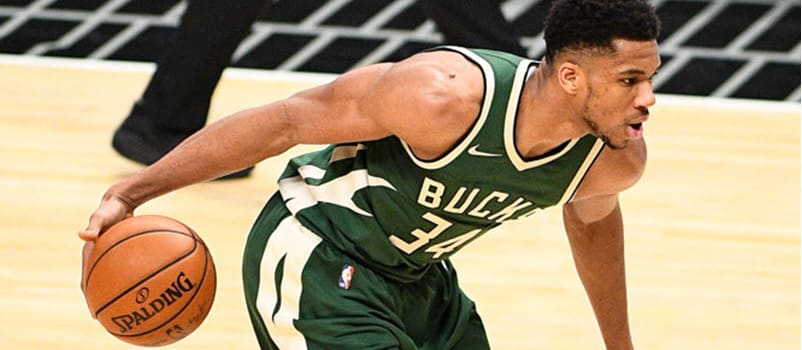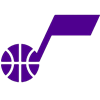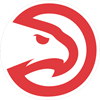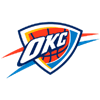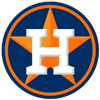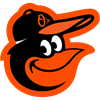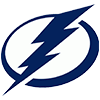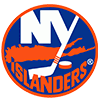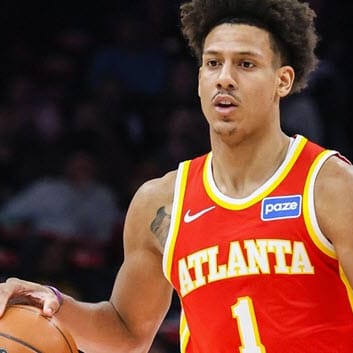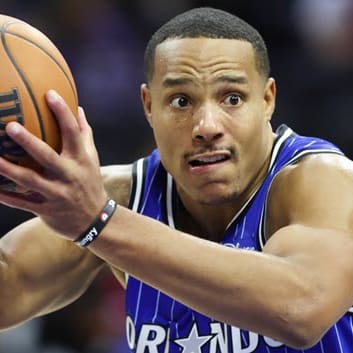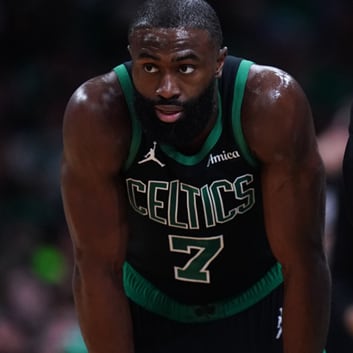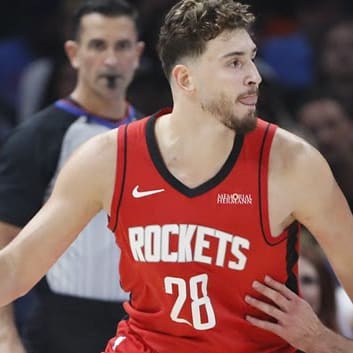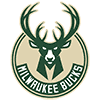 Bucks (3) vs.
Bucks (3) vs. 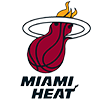 Heat (6)
Heat (6)
Series Line: Bucks -315, Heat +235
Biggest Strengths and Weaknesses (Rank)
Bucks Strengths
- Shooting % at Rim (3rd)
- Defensive Rebounding (3rd)
- Opponent Free Throw Rate (2nd)
- Opponent Shooting % at Rim (4th)
- Non-Corner 3P% (5th)
Bucks Weaknesses
- Opponent 3P% (29th)
Heat Strengths
- Forcing Turnovers (2nd)
- Shooting % at Rim (2nd)
- Opponent Short Mid-Range Shooting % (5th)
Heat Weaknesses
- Offensive Rebounding (29th)
- Corner 3P% (27th)
- Opponent Long Mid-Range Shooting % (29th)
This is a tough way to kick off the postseason for Milwaukee after being eliminated embarrassingly by Miami in last season's bubble. It's not a perfect 1:1 comparison heading into this season, however. The Heat lost Jae Crowder in the offseason and have been relatively disappointing this year. The Bucks replaced Eric Bledsoe with Jrue Holiday -- a massive upgrade.
We shouldn't expect the Heat to guard Antetokounmpo any differently than last season. They'll form a wall in front of him and try to bait him into charging into people or taking low-percentage mid-rangers. In theory, that should still prevent him from having monster games. He's not an improved shooter, with Antetokounmpo hitting just 36% of his mid-rangers. However, the Bucks have seemed more comfortable letting Khris Middleton and Jrue Holiday control the offense for stretches, and that can be either with Antetokounmpo as a screen-setter or in the dunker's spot. That action won't be easy either, as Jimmy Butler will either be on Middleton or Holiday.
The Heat weren't bothered by Milwaukee's defense
 Bucks (3) vs.
Bucks (3) vs.  Heat (6)
Heat (6)
Series Line: Bucks -315, Heat +235
Biggest Strengths and Weaknesses (Rank)
Bucks Strengths
- Shooting % at Rim (3rd)
- Defensive Rebounding (3rd)
- Opponent Free Throw Rate (2nd)
- Opponent Shooting % at Rim (4th)
- Non-Corner 3P% (5th)
Bucks Weaknesses
- Opponent 3P% (29th)
Heat Strengths
- Forcing Turnovers (2nd)
- Shooting % at Rim (2nd)
- Opponent Short Mid-Range Shooting % (5th)
Heat Weaknesses
- Offensive Rebounding (29th)
- Corner 3P% (27th)
- Opponent Long Mid-Range Shooting % (29th)
This is a tough way to kick off the postseason for Milwaukee after being eliminated embarrassingly by Miami in last season's bubble. It's not a perfect 1:1 comparison heading into this season, however. The Heat lost Jae Crowder in the offseason and have been relatively disappointing this year. The Bucks replaced Eric Bledsoe with Jrue Holiday -- a massive upgrade.
We shouldn't expect the Heat to guard Antetokounmpo any differently than last season. They'll form a wall in front of him and try to bait him into charging into people or taking low-percentage mid-rangers. In theory, that should still prevent him from having monster games. He's not an improved shooter, with Antetokounmpo hitting just 36% of his mid-rangers. However, the Bucks have seemed more comfortable letting Khris Middleton and Jrue Holiday control the offense for stretches, and that can be either with Antetokounmpo as a screen-setter or in the dunker's spot. That action won't be easy either, as Jimmy Butler will either be on Middleton or Holiday.
The Heat weren't bothered by Milwaukee's defense last season, but they'll now have to contend with Holiday rather than Bledsoe. Holiday can create issues for Goran Dragic and Tyler Herro, both of whom looked great during last season's playoffs. There's already some concern there, as Dragic is another year older, and Herro hasn't made a leap mirroring his impressive 2020 postseason. Duncan Robinson has also seen his three-point efficiency take about a four percent dip. Jimmy Butler is playing better than last season with averages of 22-7-7-2 on 50 percent shooting. Bam Adebayo has averaged 19-9-5-1-1 on 57 percent shooting.
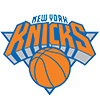 Knicks (4) vs.
Knicks (4) vs. 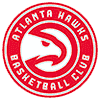 Hawks (5)
Hawks (5)
Series Line: Knicks -114, Hawks -112
Biggest Strengths and Weaknesses
Knicks Strengths
- 3P% (4th)
- Opponent Shooting % at Rim (1st)
- Opponent Mid-Range Shooting (3rd)
- Opponent 3P% (1st)
Knicks Weaknesses
- Shooting % at Rim (29th)
Hawks Strengths
- Free Throw Rate (2nd)
- Long Mid-Range Shooting % (5th)
- Opponent 3P% (3rd)
Hawks Weaknesses
- Forcing Turnovers (29th)
The Knicks are the feel-good story of the NBA. Given a preseason over/under of 21.5, the Knicks finish the year with 41 wins. Julius Randle is practically a lock for Most Improved Player, and Tom Thibodeau is a strong candidate for Coach of the Year. The Hawks started the year up-and-down with a new-look roster but turned things on after the All-Star break. Atlanta went 25-11 to end the season and had the eighth-best net rating (+4.5) during that stretch.
The Knicks went 3-0 against the Hawks during the regular season, with the Hawks having most of their key players available for each game. Atlanta had no answer for Julius Randle, who averaged 37-12-7 against them. Slowing him down will be one of the keys for the Hawks. Derrick Rose also has the potential for a big series, as Trae Young is one of the worst defenders in the NBA. Nerlens Noel may have trouble in Round 1, as he'll fight for points and rebounds against Clint Capela, who is in the midst of a career season with averages of 15.2 points, 14.3 rebounds and 2.0 blocks. RJ Barrett closed the year strong by averaging 18.5 points while shooting 43.5 percent from three in his last 34 appearances.
Trae Young will be making his highly-anticipated playoff debut. The point guard lost out on an All-Star spot amidst his team's success, but he was still playing at a high level with averages of 25 and 9. The Knicks might not be able to prevent him from getting his offensive numbers, but he'll likely be hunted on defense, which could lead to foul trouble. One of Atlanta's primary strengths is their depth. The Hawks have five players averaging at least 15 points per game and eight available players averaging at least 10 points per game. That depth also allows versatile lineup construction. John Collins can play power forward or center. Kevin Huerter, DeAndre Hunter and Bogdan Bogdanovic are multi-position players. While that's great from a real-life perspective, it could make them tough to bet on from a player-prop and fantasy perspective.
 Nuggets (3) vs.
Nuggets (3) vs. 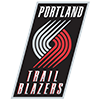 Trail Blazers (6)
Trail Blazers (6)
Series Line: Nuggets -117, Blazers -107
Biggest Strengths and Weaknesses
Nuggets Strengths
- Offensive Rebounding (2nd)
- Shooting % at Rim (4th)
- Mid-Range Shooting % (3rd)
- Corner 3P% (4th)
Nuggets Weaknesses
- Free-Throw Rate (28th)
- Opponent Shooting % at Rim (30th)
Blazers Strengths
- Lack of Turnovers (1st)
- 3P% (5th)
Blazers Weaknesses
- Short Mid-Range Shooting % (28th)
- Opponent Long Mid-Range Shooting % (26th)
- Opponent Corner 3P% (28th)
The Nuggets have the presumptive MVP in Nikola Jokic but are missing their No. 2 option after Jamal Murray went down with a torn ACL in mid-April. However, they still managed to finish the season out strong, going 13-5 after Murray's last game. The Trail Blazers have struggled with injuries for most of the season. CJ McCollum played just 47 games, and Jusuf Nurkic played 37. With everyone healthy, they could fire at the end of the year, going 10-2 in the last 12 games with the league's best net rating (+16.3).
Jokic, averaging 26-11-8, is fueling the league's fifth-best offense. Denver has been able to Band-Aid Murray's absence with Facundo Campazzo, Austin Rivers and Monte Morris, but it remains to be seen if that's a rotation that can be exploited in the postseason with increased defensive focus. Michael Porter has formally stepped into a No. 2 option role. Since March, he's averaged 22 and 8 on 57/47/80 shooting. Aaron Gordon has been a nice addition, but he's inconsistent since being acquired from Orlando. If the Nuggets can get Will Barton (hamstring) back for this series, it will be a considerable boost. There just aren't many consistent threats for 20 points on this team.
Portland has the league's second-best offense but the second-worst defense. Damian Lillard is a constant threat for 40 points, McCollum is a threat for 30, and both Powell and Nurkic are threats for 25. We've come to know what to expect from this team, though the additions of Powell and Robert Covington add an interesting wrinkle compared to last year's squad. They're unquestionably a more talented team than the Nuggets. If you're someone who believes talent wins out, it's understandable to bet on the Blazers.
 Clippers (4) vs.
Clippers (4) vs. 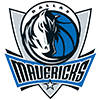 Mavericks (5)
Mavericks (5)
Series Line: Clippers -400, Mavericks +300
Biggest Strengths and Weaknesses
Clippers Strengths
- 3P% (1st)
Clippers Weaknesses
- Opponent Long Mid-Range Shooting % (27th)
Mavericks Strengths
- Lack of Turnovers (3rd)
- Shooting % at Rim (1st)
- Mid-Range Shooting % (5th)
Mavericks Weaknesses
- Forcing Turnovers (24th)
This is a rematch of last season's First Round. Kristaps Porzingis played in just three of the six games, which led to Trey Burke being third on the team in series shot attempts. Luka Doncic was electric and averaged 31-10-9 on 50 percent shooting. Paul George was awful, but the Clippers' talent ultimately won out, fueled by Kawhi Leonard's 33-10-5 averages, including 2.3 steals and 54 percent shooting.
Despite this series going six games last season, the oddsmakers' confidence is firmly with the Clippers. Leonard and George have been up to their usual standards this season, and they combine for 48.1 points, 13.1 rebounds, 10.4 assists and 2.7 steals per game. Adding Serge Ibaka has been a benefit over last season, as he provides a stretch-five option and is a good rim protector. Overall, the Clippers are deeper than they were in last year's bubble, and the other additions include Luke Kennard, Nicolas Batum, DeMarcus Cousins and Rajon Rondo. This appears to be a team ready to make up for last season's failures.
Dallas has the NBA's eighth-best offense, fueled by Doncic, who has averaged 28-9-9 over the past two seasons. Porzingis looked great in last year's playoffs for the three games he played, as he averaged 23.7 points on 52.5 percent shooting. If he can replicate that, the Mavericks will at least have a puncher's chance at the upset. Dallas' surrounding talent hasn't changed significantly other than swapping out Seth Curry for Josh Richardson, which has seemed like a lateral move at best. Tim Hardway will also likely have to catch fire for this team to win four games. He averaged 17.8 points on 42.1 percent shooting in last year's series.
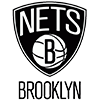 Nets (2) vs.
Nets (2) vs. 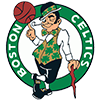 Celtics (7)
Celtics (7)
Series Line: Nets -1430, Celtics +700
Biggest Strengths and Weaknesses
Nets Strengths
- Free Throw Rate (5th)
- Mid-Range Shooting % (2nd)
- 3P% (2nd)
- Opponent 3P% (1st)
Nets Weaknesses
- Forcing Turnovers (27th)
Celtics Strengths
- Offensive Rebounding (6th)
Celtics Weaknesses
- Opponent Free Throw Rate (27th)
After defeating the Wizards in their play-in matchup, the Celtics get the honor of facing the NBA's newest superteam, the Nets. Down Jaylen Brown, Boston will need to rely on Jayson Tatum and Kemba Walker to generate offense even more than usual. On the other hand, Brooklyn is fully healthy and check into the series with the best offense in the league (119.4 ORTG).
The Nets' Big 3 have played just eight games together, but that's not expected to slow them down, as they're massive favorites in this series. When all three of Kevin Durant, James Harden and Kyrie Irving are on the court, the Nets are +11.1 per 100 possessions with a ridiculous 123.2 offensive rating. Durant and Harden, specifically, are two of the best modern scorers we've ever seen. Having Irving as a third option is nearly an unprecedented luxury. They're unquestionably flawed on defense, ranking 21st on that side of the ball, but that might not matter with the scoring upside.
Tatum needed to go for 50 points for the Celtics to defeat the Wizards in the play-in game. Over the past 19 games, he's averaged 30.9 points on 47/41/88 shooting, 8.4 rebounds and 4.4 assists. The Celtics will need that from him and more to keep up with the Nets offensively. The same needs to be said about Walker, who scored 29 points against Washington. Both Evan Fournier and Marcus Smart had down games, but that just won't be able to happen against the Nets. Maybe one of them can have an off night, but not both. It's safe to say this would be an unprecedented upset if the Celtics pull it off.
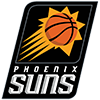 Suns (2) vs.
Suns (2) vs. 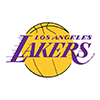 Lakers (7)
Lakers (7)
Series Line: Lakers -162, Suns +130
Biggest Strengths and Weaknesses
Suns Strengths
- Lack of Turnovers (4th)
- Mid-Range Shooting % (1st)
- Corner 3 Shooting % (2nd)
- Opponent 3P% (5th)
Suns Weaknesses
- Free Throw Rate (26th)
Lakers Strengths
- Forcing Turnovers (4th)
- Defensive Rebounding (5th)
- Opponent Mid-Range Shooting % (2nd)
- Opponent 3P% (4th)
Lakers Weaknesses
- Turnovers (28th)
- Long Mid-Range Shooting % (29th)
The Suns and the Knicks have been the two teams to play most above expectations this season, though Phoenix has run into some bad luck in facing the Lakers in the first round. The Lakers defeated the Warriors in a play-in game to claim the No. 7 seed after going into a tailspin with both LeBron James and Anthony Davis sidelined for an extended stretch. Their path to the Finals will be a tough road.
Monty Williams is a strong candidate for Coach of the Year, while Chris Paul could end up with a Top-5 MVP finish after averaging 16.4 points on 50/40/93 shooting, plus 8.9 assists, 4.5 rebounds and 1.4 steals in 31.4 minutes. Devin Booker was voted to a second consecutive All-Star Game after averaging 26-4-4 on 48/34/87 shooting. While Deandre Ayton took a step back in his total production this season, the addition of an elite point guard in Paul helped the center get to 14.4 points on 62.6 percent shooting in addition to his 10.5 rebounds and 1.2 blocks. Jae Crowder and Mikal Bridges provide a significant 3-and-D presence on the wing, with the two combining for 4.4 threes and 3.3 total blocks-plus-steals per game. What the Suns lack are players who can consistently get to the free-throw line and center depth. Phoenix uses Dario Saric as a reserve center, which could be a massive problem if the Lakers decide to go with big lineups. The roster also has relatively little playoff experience outside of Paul and Crowder. Notably, this will be the first playoff series for Booker and Ayton.
The Lakers stumbled into the seventh seed by narrowly defeating the Warriors in the play-in game, which isn't a great sign considering the talent difference between the two teams. It's possible James and Davis still weren't 100 percent healthy, and the extra days off between the play-in game and Game 1 of this series could help. Davis is in the midst of a down year, with his stats decreasing essentially across the board compared to last year. He may be coasting after a long run to the Finals coupled with a short offseason. This could end up being a big series for him, considering the Suns' lack of frontcourt depth. Adding Dennis Schroder was also a good upside in the offseason, with the point guard averaging 15.4 points and 5.8 assists. However, his three-point shooting (33.5 percent) leaves something to be desired. The center rotation of Montrezl Harrell, Andre Drummond and Marc Gasol might end up being impossible to predict, and it could change on a quarter-to-quarter basis based on how each one is faring. Ultimately, the key for the Lakers in this series could be using bully-ball against the relatively small Suns frontline.
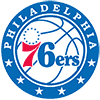 76ers (1) vs.
76ers (1) vs. 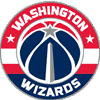 Wizards (8)
Wizards (8)
Series line: 76ers -1250, Wizards +720
Biggest Strengths and Weaknesses
76ers Strengths
- Free Throw Rate (1st)
- Forcing Turnovers (3rd)
- Mid-Range Shooting % (4th)
- Opponent Mid-Range Shooting % (1st)
- Opponent Corner 3P% (5th)
76ers Weaknesses
- Turnovers (20th)
Wizards Strengths
- Free Throw Rate (3rd)
- Short Mid-Range Shooting % (4th)
Wizards Weaknesses
- Opponent Free Throw Rate (28th)
- Opponent Shooting % at Rim (27th)
- Opponent Mid-Range Shooting % (30th)
The 76ers finished with the best record in the East, fueled by the league's third-best defense and a top-3 finisher for MVP in Joel Embiid. The Wizards fought and clawed into the play-in tournament, winning two straight games to claim the eighth seed.
Embiid is in the midst of the best season of his career, with averages of 28.5 points on 51.3 percent shooting, 10.6 rebounds, 2.8 assists, 1.4 blocks and 1.0 steals in 31.1 minutes. Ben Simmons was stagnant, but he's evolved into one of the league's most versatile defenders. Tobias Harris had another excellent scoring season, posting 19.5 points per game on 51/39/89 shooting. The addition of Seth Curry, who is shooting 45.0 percent from three, has also helped space the floor for Embiid and Simmons. Matisse Thybulle, while not able to stay on the court for long stretches due to horrible offense, is one of the league's best perimeter defenders. He could end up guarding Bradley Beal and Russell Westbrook for stretches. But, ultimately, this series will revolve around Embiid. The Wizards have one of the worst center rotations in the league and allow opponents to shoot the fourth-highest percentage at the rim.
After looking absolutely washed up to start the season, Russell Westbrook turned things around in a big way and helped carry Washington to the playoffs. During his final 39 regular-season games, he averaged 24-13-13 on 45/33/69 shooting, plus 1.6 steals. Bradley Beal had another great season as well, finishing second in points per game (31.3) in the NBA and shooting 49/35/89. Aside from that duo, Washington struggles to find consistent production. Their second-leading available scorer is Rui Hachimura, who averages just 13.8 points on 48/33/77 shooting. Davis Bertans is a marksman (39.5 percent from three), but he's a pure specialist whose defense gets exposed in the postseason. The Wizards run a three-center rotation of Alex Len, Daniel Gafford and Robin Lopez. That was acceptable (barely) in the regular season, but I fear for their lives in a series against Embiid. Gafford can hold his own from a shot-blocking perspective, but he doesn't have enough bulk to step Embiid from backing his way to the basket. As much as I respect the Wizards' run, I think it will stop here in rough fashion.
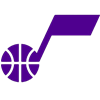 Jazz (1) vs.
Jazz (1) vs. 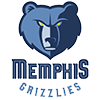 Grizzlies (8)
Grizzlies (8)
Series Line: TBD
Biggest Strengths and Weaknesses
Jazz Strengths
- Offensive Rebounding (5th)
- Defensive Rebounding (2nd)
- Limiting Opponent Free Throws (1st)
- 3P% (3rd)
- Opponent Mid-Range Shooting % (5th)
- Opponent 3P% (2nd)
Jazz Weaknesses
- Forcing Turnovers (30th)
Grizzlies Strengths
- Lack of Turnovers (5th)
- Offensive Rebounding (4th)
- Opponent Shooting % at Rim (5th)
Grizzlies Weaknesses
- Free Throw Rate (27th)
- Non-Corner 3P% (26th)
- Opponent Short Mid-Range Shooting % (27th)
- Opponent Corner 3P% (29th)
The Jazz made a surprising leap forward this season, claiming the NBA's best record (52-20). That's a result of the league's third-best offense and best defense. The Grizzlies won both their play-in games -- first, against the Spurs; second, against the Warriors -- to secure the eighth seed. Their defense is what's got them here, but it now faces a much more formidable opponent in the Jazz.
Donovan Mitchell and Rudy Gobert were both selected to their second consecutive All-Star game this season. The guard averaged 26-5-4 on 44/39/85 shooting, and the center averaged 14 and 14 with 2.7 blocks on a league-high 67.5 percent from the field. Utah also has two Sixth Man of the Year candidates in Jordan Clarkson -- a microwave scorer -- and Joe Ingles -- a methodical playmaker and elite three-point shooter. And that's before considering that Mike Conley is averaging 16 and 6 and Bojan Bogdanovic is scoring 17 PPG on 39 percent from deep. What this team lacks in pantheon talent it makes up for with a balanced and deep roster. Watching the Jazz play basketball feels like watching an elite team. The ball movement and defense are reminiscent of the Golden Age Spurs teams, even if there's no central Tim Duncan figure.
If this Grizzlies team hasn't earned your respect, I'm not sure how much more they can do. Ja Morant is still a flawed player, but he's damn good at what he does. His performance in the elimination play-in game against the Warriors was a gem, and it's hard to imagine him not being one of the league's best point guards in the prime of his career. And Jonas Valanciunas -- a man who needs an ice bath more than anyone. He's single-handedly showing what an old-school center can still bring to the modern NBA. He's a 20-20 threat any night he plays 35+ minutes. The rest of this team is filled with characters who are unique but somehow fit together coherently. Dillon Brooks is the Energizer Bunny. Kyle Anderson is slower than ever. Grayson Allen is making clutch threes. Xavier Tillman is a brick wall. I've really come to enjoy this team that I initially thought was boring aside from Morant. However, this upset just isn't going to happen. But I'm looking forward to seeing where this team goes in the future.


